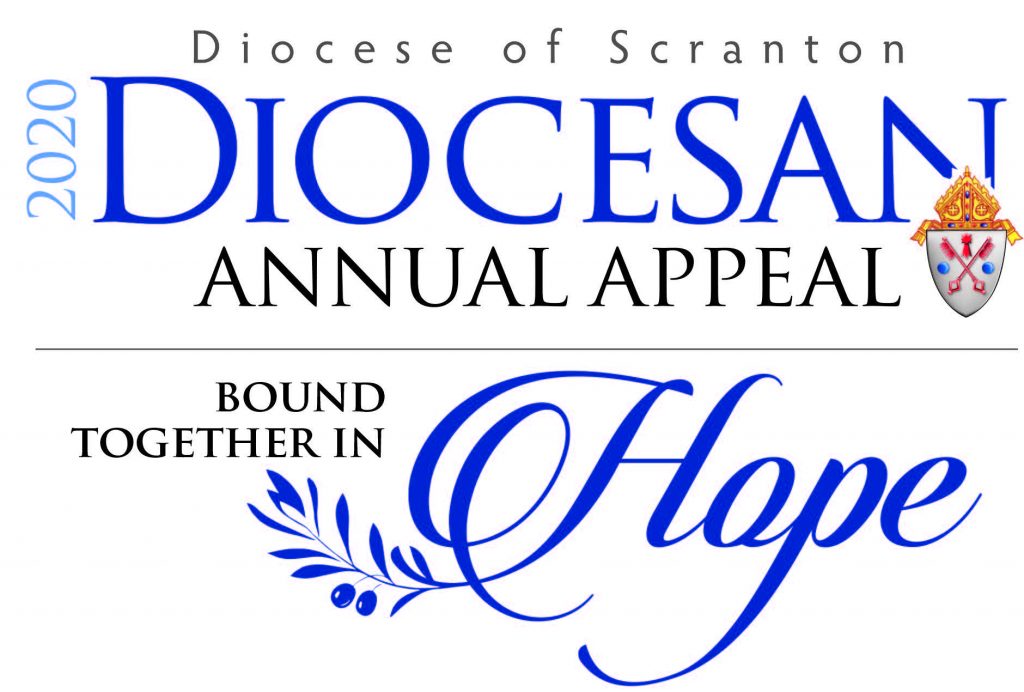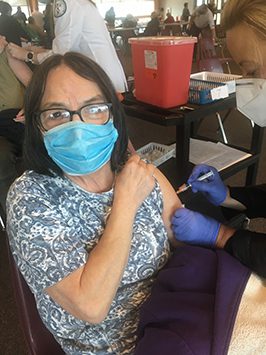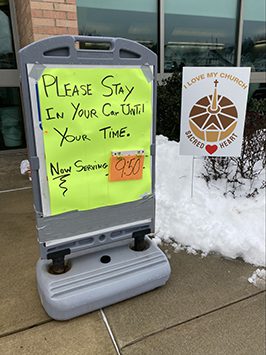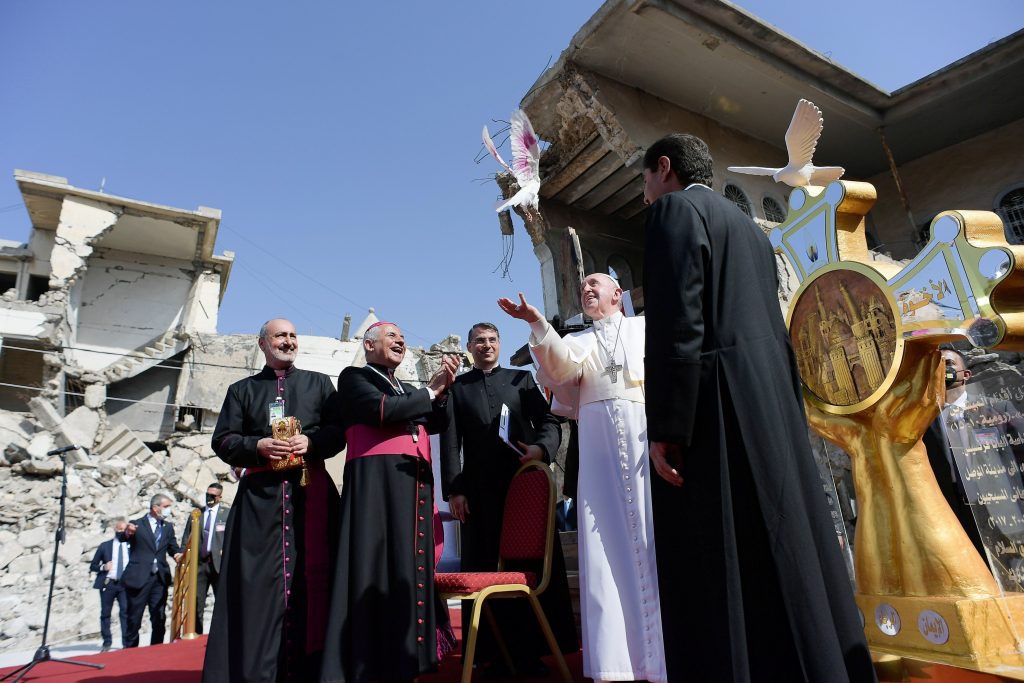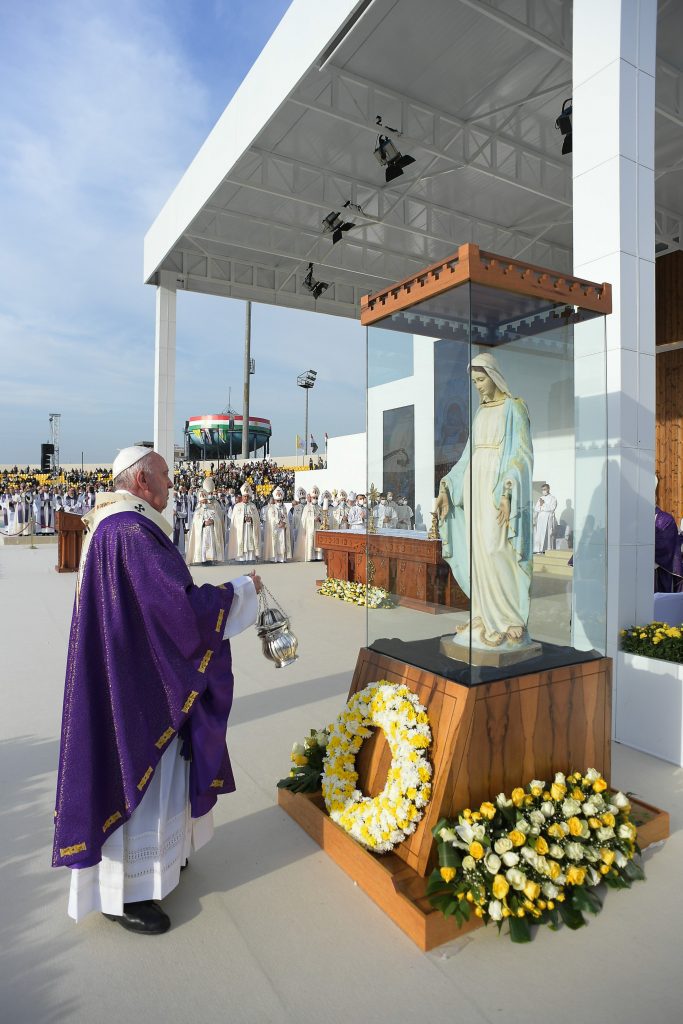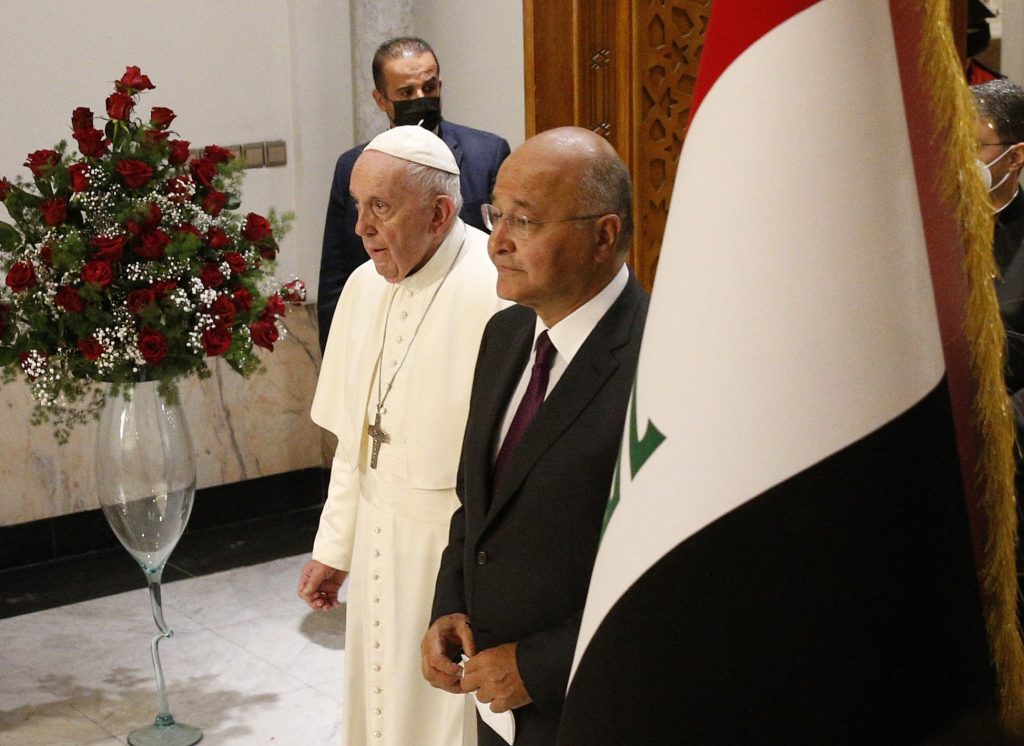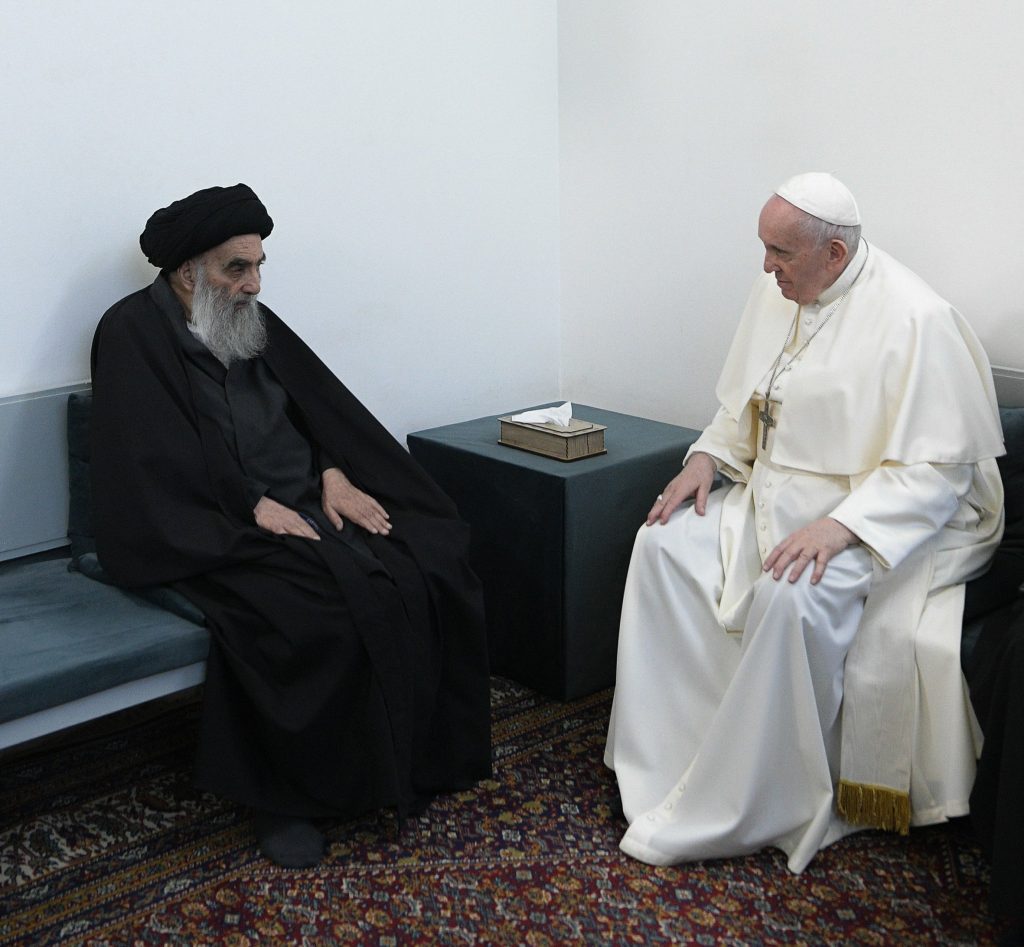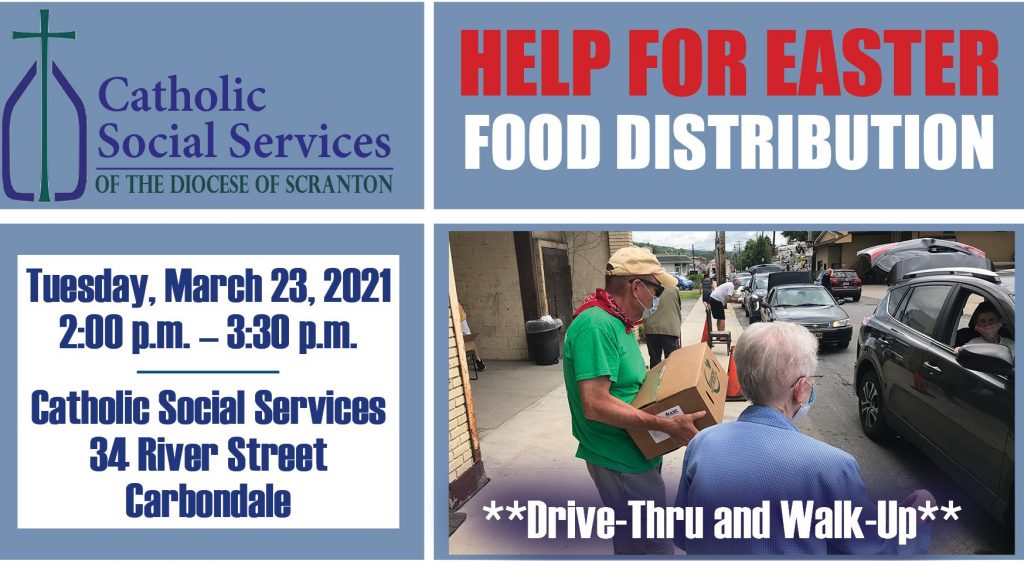
With Easter quickly approaching, Catholic Social Services of the Diocese of Scranton is working to make sure that all families, children and seniors have enough food.
Over the last year, the COVID-19 pandemic has affected many households with unexpected job losses and reduced hours.
“The mission of Catholic Social Services is to serve individuals and families facing hardship,” Mary Theresa Malandro, Diocesan Secretary for Catholic Human Services and Chief Executive Officer of Catholic Social Services, said. “The need for assistance continues to grow and our staff has been working tirelessly to give people a helping hand.”
The numerous offices of Catholic Social Services are planning special Easter-time events to help the community.
While some events are still in the planning process, others have already been scheduled. Additional information will be made available on the Catholic Social Services Facebook page.
In addition to its normal pantry hours, the Catholic Social Services Office in Carbondale will host a special food distribution just before Easter on Tuesday, March 23.
The food distribution will be held from 2:00 – 3:30 p.m. outside the Catholic Social Services Office, 34 River Street in Carbondale. Individuals and families can either drive-up or walk-up to receive assistance.
The Easter food distribution is open to everyone in need, no pre-registration is required.
“There are no income limits, no family size limits. We are here to help anyone in need. I turn no one away for food,” Michelle Santanna, Catholic Social Services Carbondale Officer Manager, said. “Please do not be embarrassed. We are here because we know people need help!”
Over the last year, the Catholic Social Services Carbondale food pantry hosted a number of other emergency food distributions. It also expanded its pantry hours to five days a week. In 2020, 7,287 households were served in Carbondale alone. That translates to more than 10,000 children and adults receiving assistance.
“The food insecurity right now is bad enough and when a holiday comes around, people don’t know whether to spend their money on food or something for their children, Santanna added.
In the coming months, Catholic Social Services will be collaborating with the Carbondale Area School District to do a larger food distribution once a month at the high school. The dates and times will be forthcoming.
“We will do it in conjunction with the school district to keep this going for people who need it,” Santanna explained.
The Saint Vincent de Paul Kitchen in Wilkes-Barre continues to operate daily, providing warm, nutritious meals to individuals and families in need. Because of the COVID-19 pandemic, meals are currently being served in take-out containers.
The kitchen operates every day of the year, including holidays, and this Easter will be no exception.
Leading up to the holiday, Saint Vincent de Paul Kitchen & Food Pantry is also planning a special food distribution for individuals and families in need.
The distribution is currently slated to take place on Tuesday, March 30. For additional information, please call (570) 829-7796.

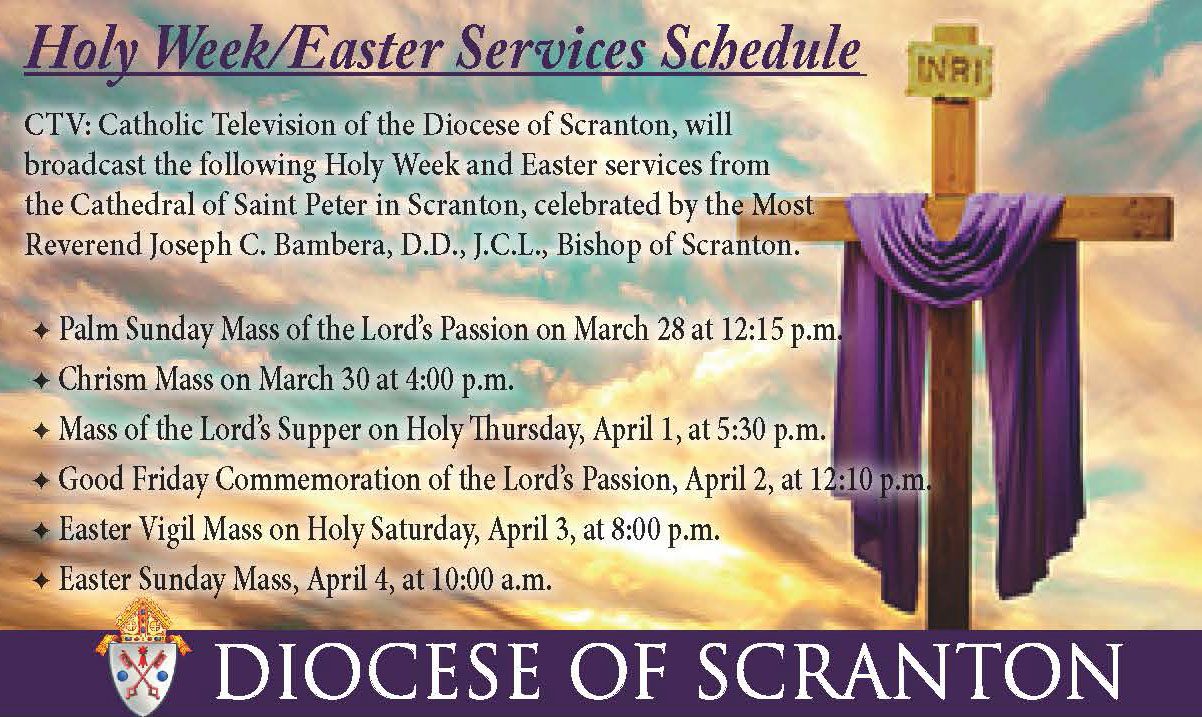


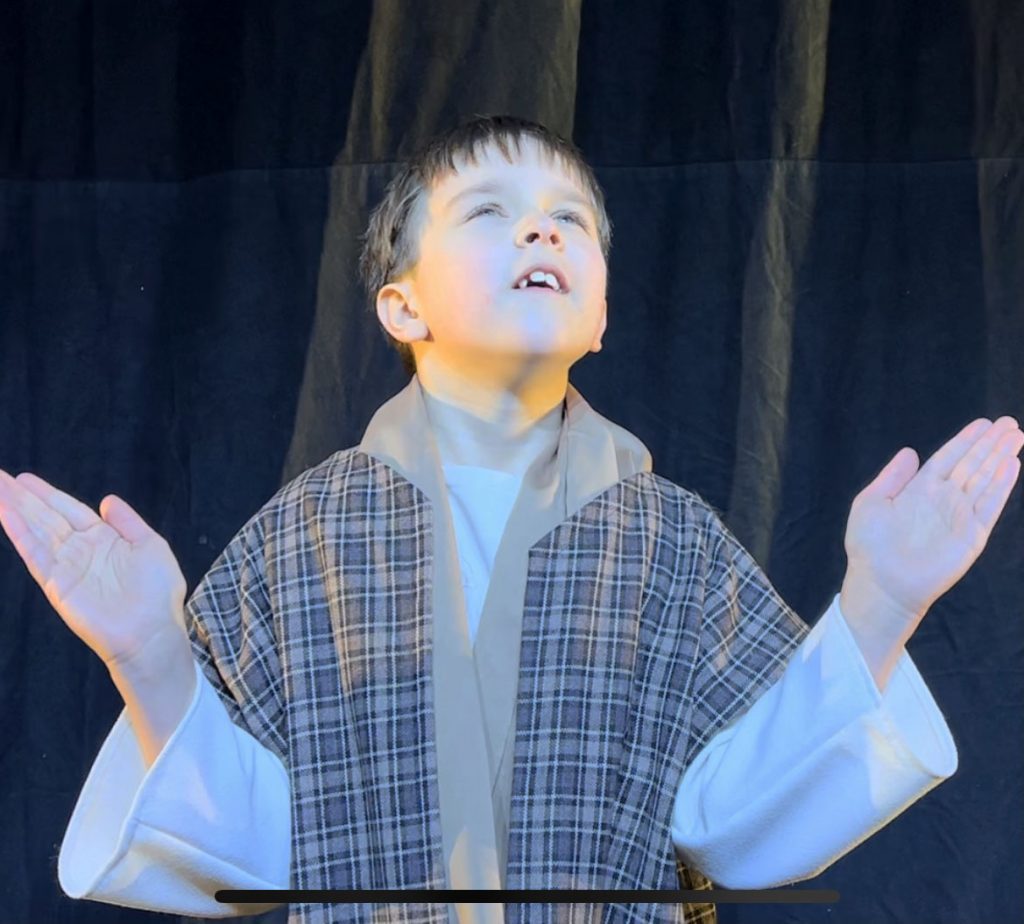 “It is a gift, a real gift,” Father James Nash, pastor, Saint Faustina Kowalska Parish, said. “It is very, very meaningful. I know our people are looking forward to it.”
“It is a gift, a real gift,” Father James Nash, pastor, Saint Faustina Kowalska Parish, said. “It is very, very meaningful. I know our people are looking forward to it.”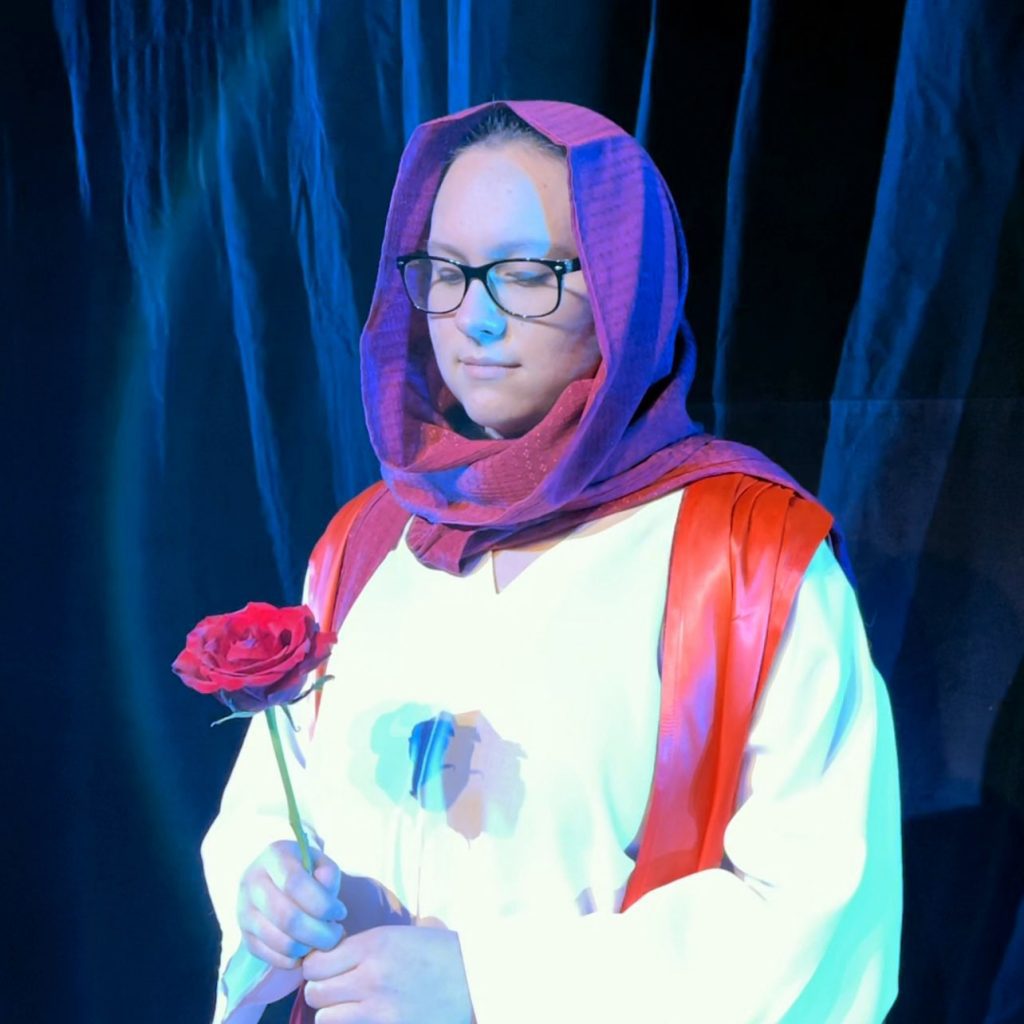 on as we do, I think they get really excited,” Wood said.
on as we do, I think they get really excited,” Wood said.